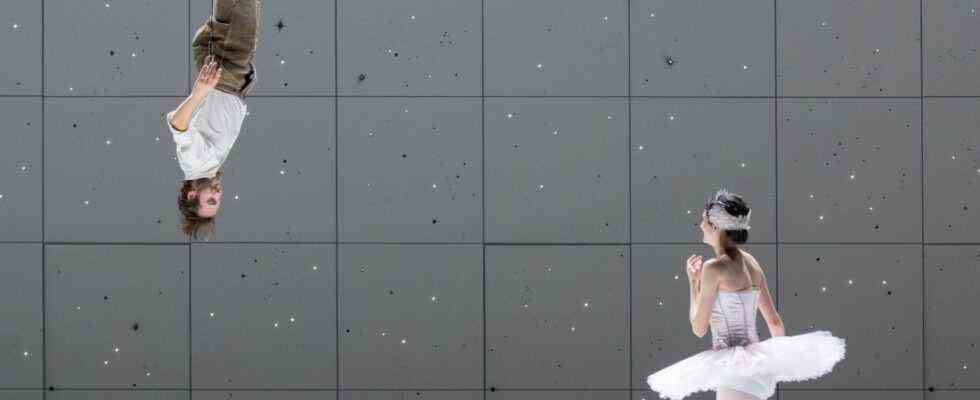Don’t let the title mislead you: The opera “The Night Before Christmas” by Nikolai Rimsky-Korsakov is hardly suitable for the pre-Christmas ritual of a family excursion into high culture. Although there are definitely Christmas aspects – the young Oksana wants shoes like the ones the tsarina wears, there is a devil who struggles with the fact that no one takes him seriously anymore, and a lot is about the winter solstice, i.e. pagan rituals. In addition there is a nature-mystical worldview and a very own joke. Otherwise, this work is above all: an overwhelming amount. Also when it comes to the fabulous music, which most of you have probably never heard before. The German premiere in 1940 was canceled after the attack by Nazi troops on the Soviet Union, and the work was forgotten. This is over, thanks to the Frankfurt Opera, whose general music director Sebastian Weigle and also thanks to Christof Loy, whose loving and imaginative staging does everything to support the effect of the music.
Rimsky-Korsakov belonged to the “Mighty Bunch”, that group of Russian composers who came together in the second half of the 19th century to renew Russian music – by returning to folk music, but always combined with a thorough knowledge of Western European music . In the “Night Before Christmas” Rimsky-Korsakov processed the “Koljadki songs” that were actually sung in Russia on the evening before Christmas. Like the carol singers in this country.
Folk song-like loses any dark earth crumb smell
The songs are melodically straightforward, harmonious but tricky. The composer uses them to build complex choral passages or fast-paced, sung dialogues, for which he juxtaposes two melodies. Two people sing of completely opposite things and underground the melodies also lead a life of their own. Sebastian Weigle conducts the Frankfurt Opera and Museum Orchestra with fabulous ease, the folk song-like loosing any dark earth crumb smell.
There are two arias in the Western European sense – Oksana has both. Extensive, delicate webs of sound, once Julia Muzychenko sings about the love of her character for herself, once for Wakula, who loves her and whom she ultimately loves, and who will bring her the tsarina’s shoes. The scene with the Tsarina caused the premiere in 1895 to collide with the censors. It is the perfect sound mimicry of a court dance event of the 18th century. Ursula Renzenbrink puts everyone in exuberant Rococo costumes.
But actually you are in the village. Apart from the costumes, Christof Loy renounces any naturalistic kitsch, had Johannes Leiacker put a white box full of star lights on the stage, a huge, dark moon keeps pushing in from the left, and the transparent image of space regularly closes the room . In this tidiness, Loy can tell the many stories that run alongside here with fabulous personal direction. He tells of the lust of the very crisp devil (Andrei Popov) and the exuberant witch Solocha (Enkelejda Shkoza), who has to hide her four lovers in big bags in a completely grotesque, insanely funny scene, in which the singers – devil, deacon, mayor , richest man in the village – then grope around like in a funny children’s game.
“Please don’t destroy what we’ve built over decades!”
Surreal figures haunt the village world, the ballet troupe plays storm, the ensemble is of the very best Russian quality, Alexey Tikhomirov, for example, as Tschub, Okasana’s father and the richest man in the village, is a mountain of singing power. And because that’s not enough, Ayelet Polne dances as a virgin goddess like a “Swan Lake” ballerina, dances a tender love with a plush bear and a pas de deux with the spring god (Gorka Culebras), vertically, because she stands below and he floats down from the sky.
In a letter to the Prime Minister of Hesse, the Frankfurt opera director Bernd Loebe recently pleaded: “Please do not destroy what we have built up over the decades!” The house does everything to keep playing, and the audience tests themselves. At the end of this wonderful performance, they explode with happiness.

